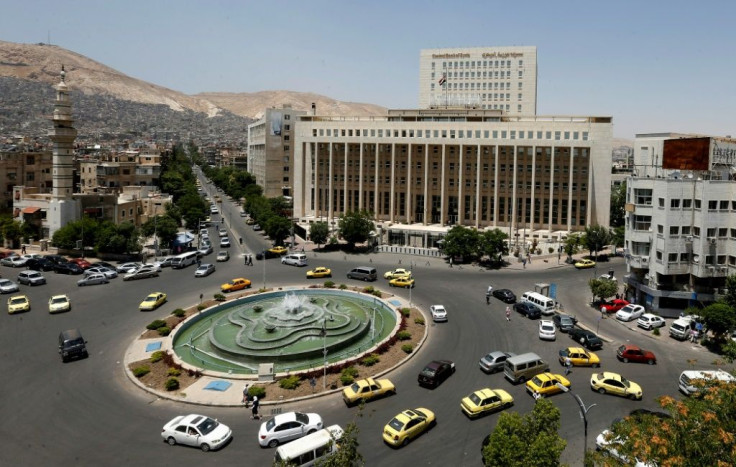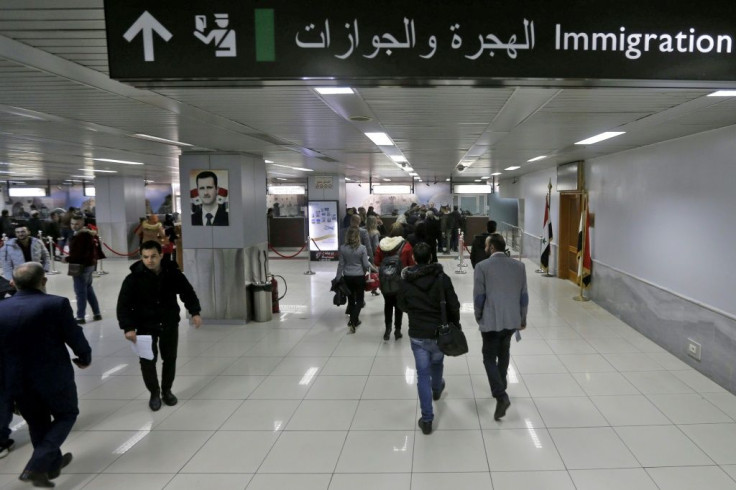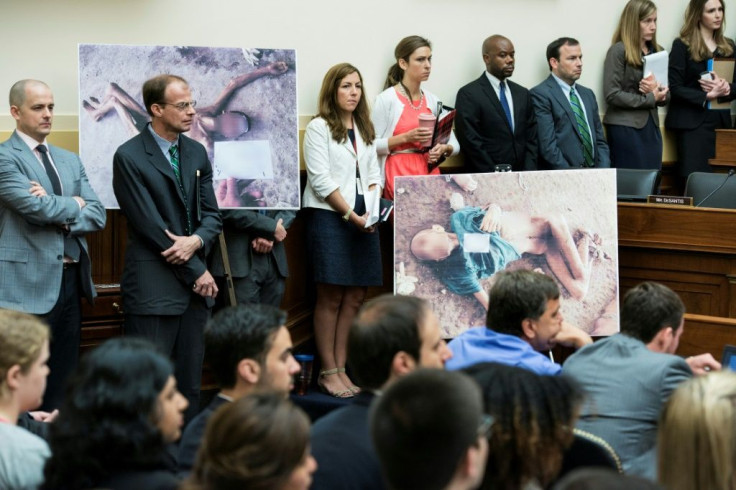Vowing New Syria Campaign, US Sanctions Dozens Including Assad Wife

The United States on Wednesday imposed sanctions on Syrian President Bashar al-Assad's wife and dozens of others as it vowed a vast pressure campaign under a new law that has already rattled the war-torn nation's economy.
The Caesar Act, which took effect Wednesday, punishes under US law any company that works with Assad, casting a cloud over efforts to rebuild Syria.
"We anticipate many more sanctions and we will not stop until Assad and his regime stop their needless, brutal war against the Syrian people," Secretary of State Mike Pompeo said in a statement, vowing a "sustained campaign of economic and political pressure."
The first batch of designations target 39 people or entities, including Assad personally as well as his wife Asma -- the first time she has been hit by US sanctions.
Under the law, any assets in the United States will be frozen. President Assad has been under US sanctions since he began to crush an uprising in 2011.

Born in Britain to a cardiologist father and diplomat mother, Asma al-Assad is a former investment banker who had styled herself as a progressive reformer and modern face of the Assads. She announced in August that she had recovered from breast cancer.
But Pompeo in his statement charged that Asma al-Assad, with the support of her husband and her own Akhras family, "has become one of Syria's most notorious war profiteers."

Syrian government-controlled areas this month saw rare protests over the skyrocketing cost of living. President Assad last week sacked his prime minister of four years.
On Wednesday, the central bank devalued the country's pound after the currency depreciated for weeks on the black market in anticipation of the law.

Nonetheless, in its first batch of sanctions, the United States focused on Syrians and avoided targeting companies from crucial ally Russia -- a step that could send further chills through the economy.
James Jeffrey, the US pointman on Syria, said Russia had recently shown greater willingness to "at least explore" steps alongside Western nations to ease the Syria crisis, although he voiced caution.
The Treasury Department took action against companies involved in major property projects for post-war Syria, accusing Assad of razing homes in opposition strongholds to benefit his loyalists.

The targets include Marota City, an under-construction luxury residential complex, and Grand Town Tourist City, a development near the Damascus airport set to include an exclusive hotel and golf course.
People and groups designated by the State Department include Mohammed Hamsho, one of Syria's most prominent entrepreneurs, and the Fatemiyoun, an Iranian-led division of Afghan Shiite Muslims that has been deployed to prop up Assad.
Assad, backed by Russia and Iran, has succeeded in winning back most of Syria after a war that has killed more than 380,000 people and saw the rise of the ultra-violent Islamic State movement.
The Caesar Act, passed by the US Congress last year with bipartisan support, aims to prevent Assad's normalization without accountability for human rights abuses.
It also blocks US reconstruction assistance. Humanitarian groups are exempt from the sanctions on working in Syria.
"We are not going to reward Assad for destroying his country by pitching in with everybody else and building it back up for him," Jeffrey, the US envoy, told reporters.
Pompeo said the goal was to force Assad into accepting Security Council Resolution 2254 of 2015 -- which called for a ceasefire, elections and political transition in Syria.
A UN-driven process has made no headway, with Assad last year launching a major offensive backed by Russian airpower to retake Idlib, the last major rebel holdout.
Representative Eliot Engel, a Democrat who helped spearhead the law, said the Caesar Act was long overdue.
"It shouldn't have taken so long to get this bill enacted and it shouldn't have taken Congress to push the administration to take a positive step to address the crisis," Engel said.
The Caesar Act is named after a former Syrian military photographer who fled at great personal risk in 2014 with 55,000 images of brutality in Assad's jails.
The European Union has imposed its own sanctions over Syria and a French court separately on Wednesday convicted an uncle of Bashar al-Assad over money-laundering and misappropriation of government funds.
© Copyright AFP 2024. All rights reserved.





















